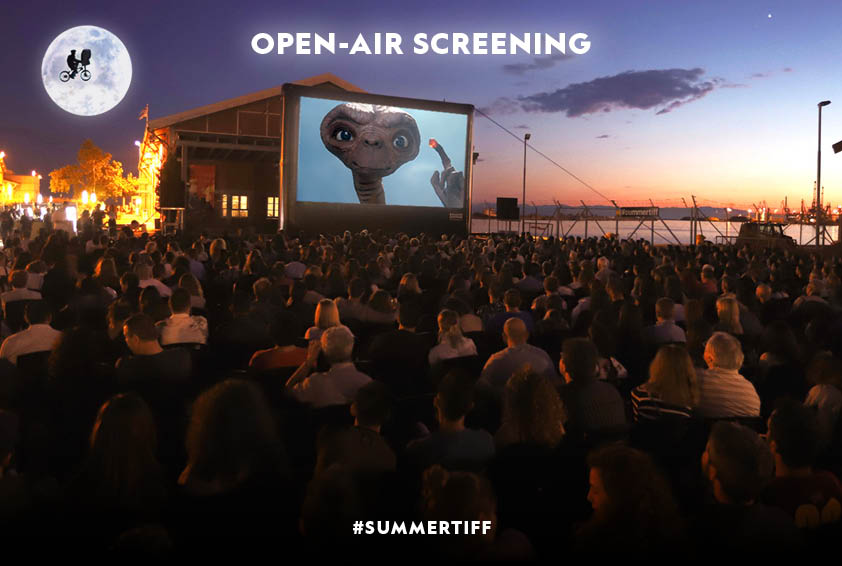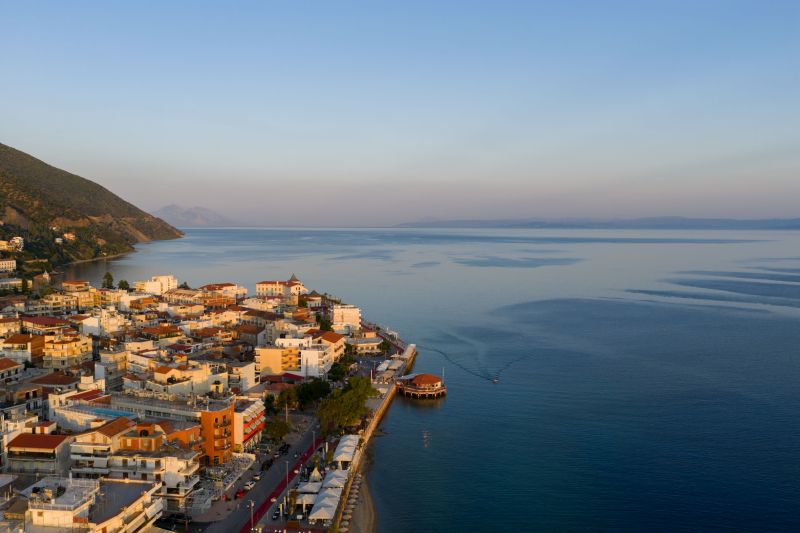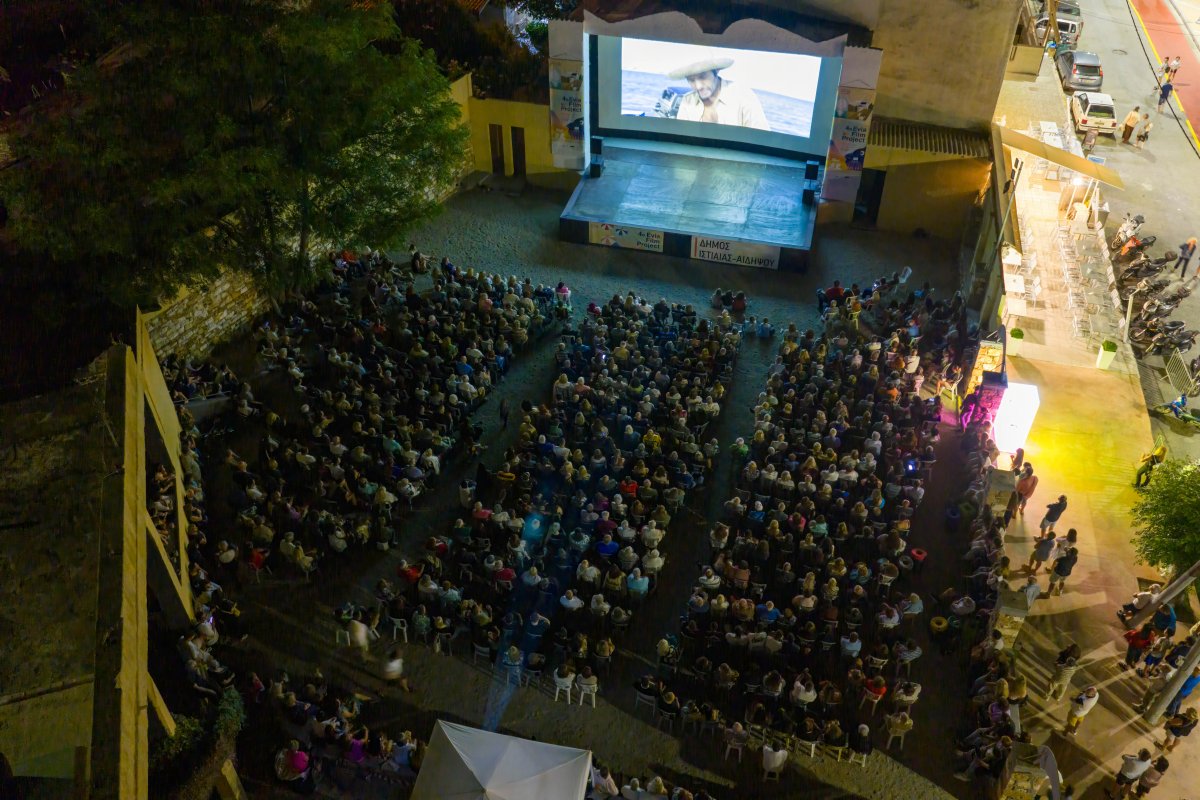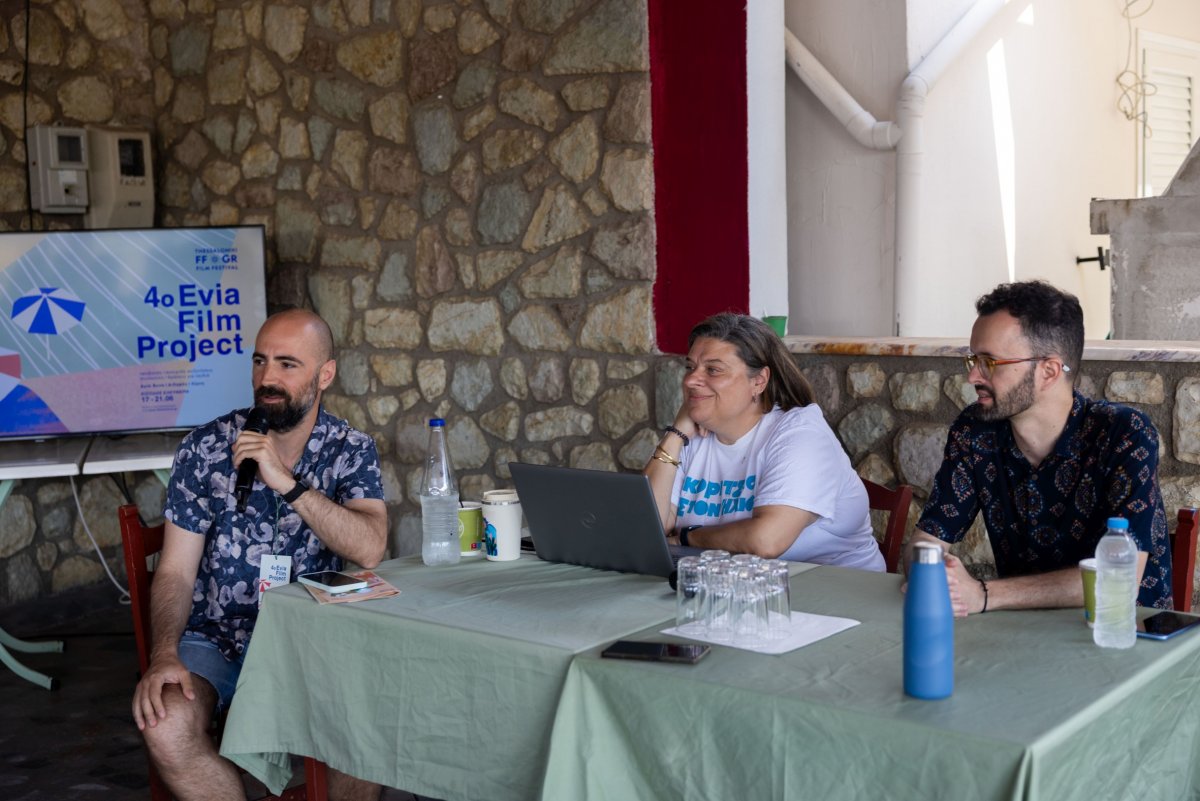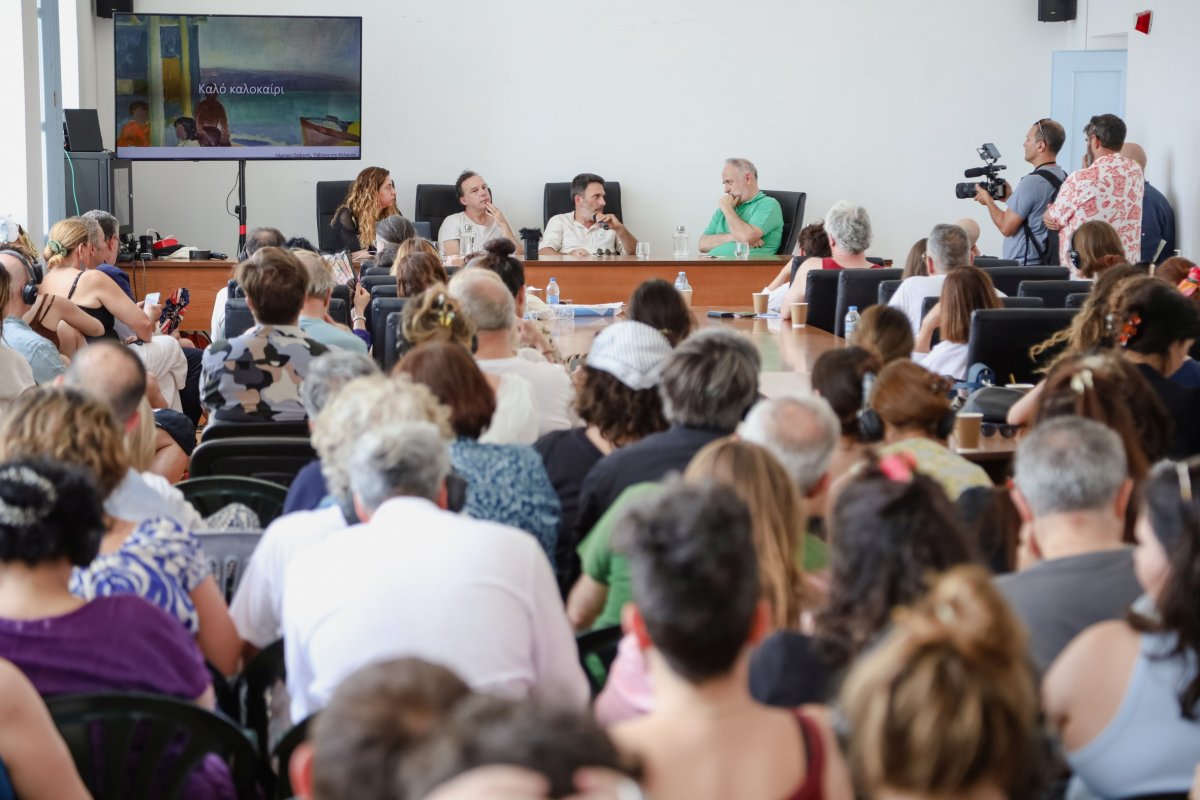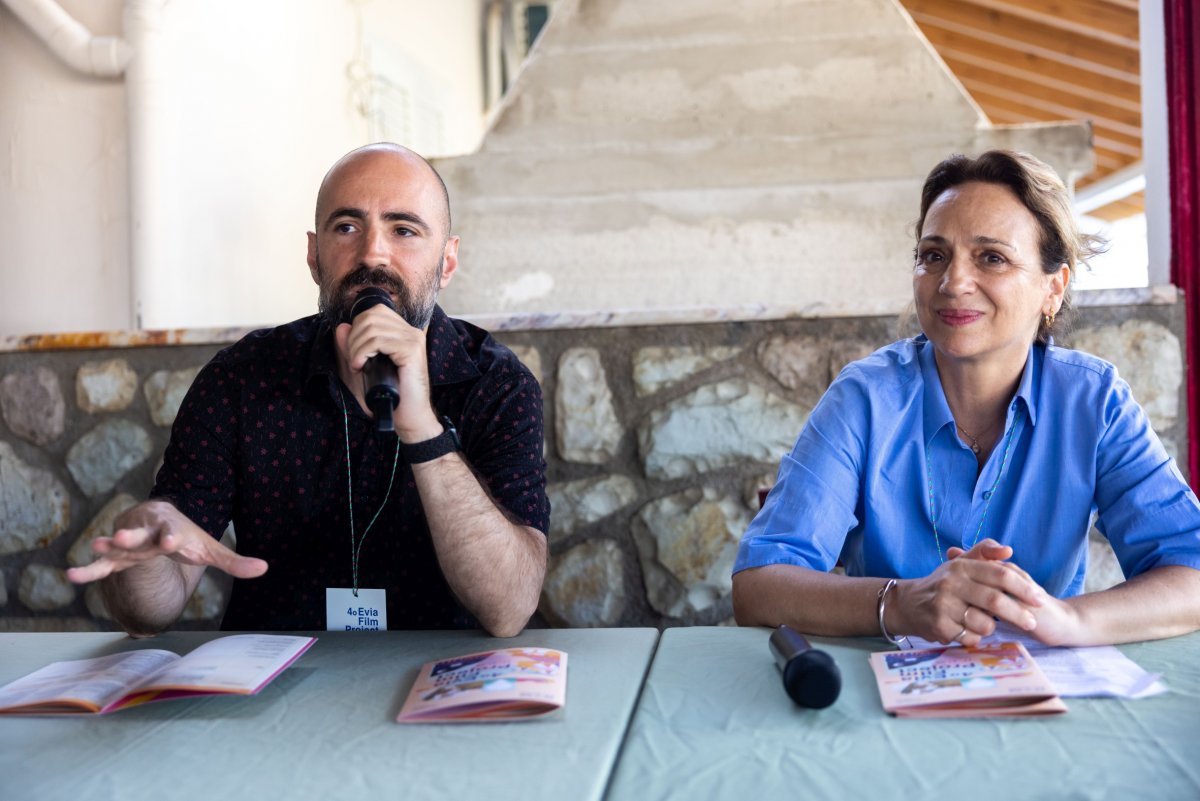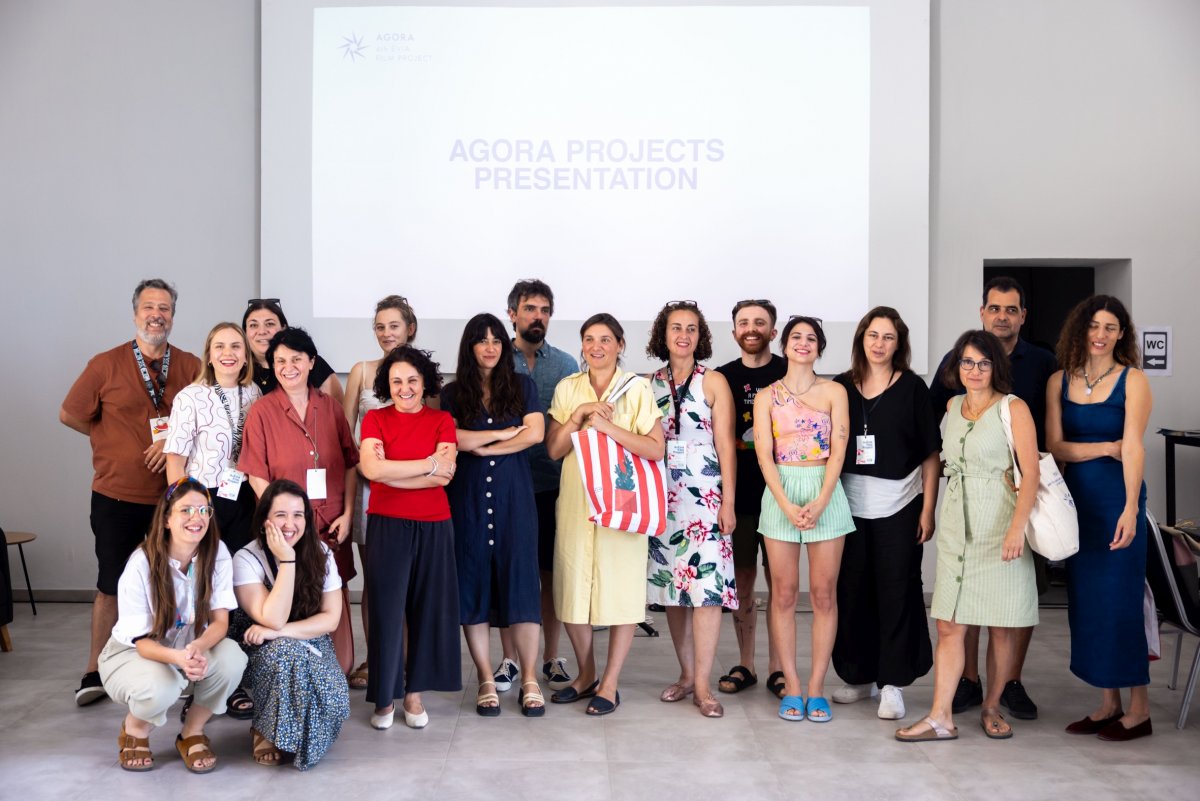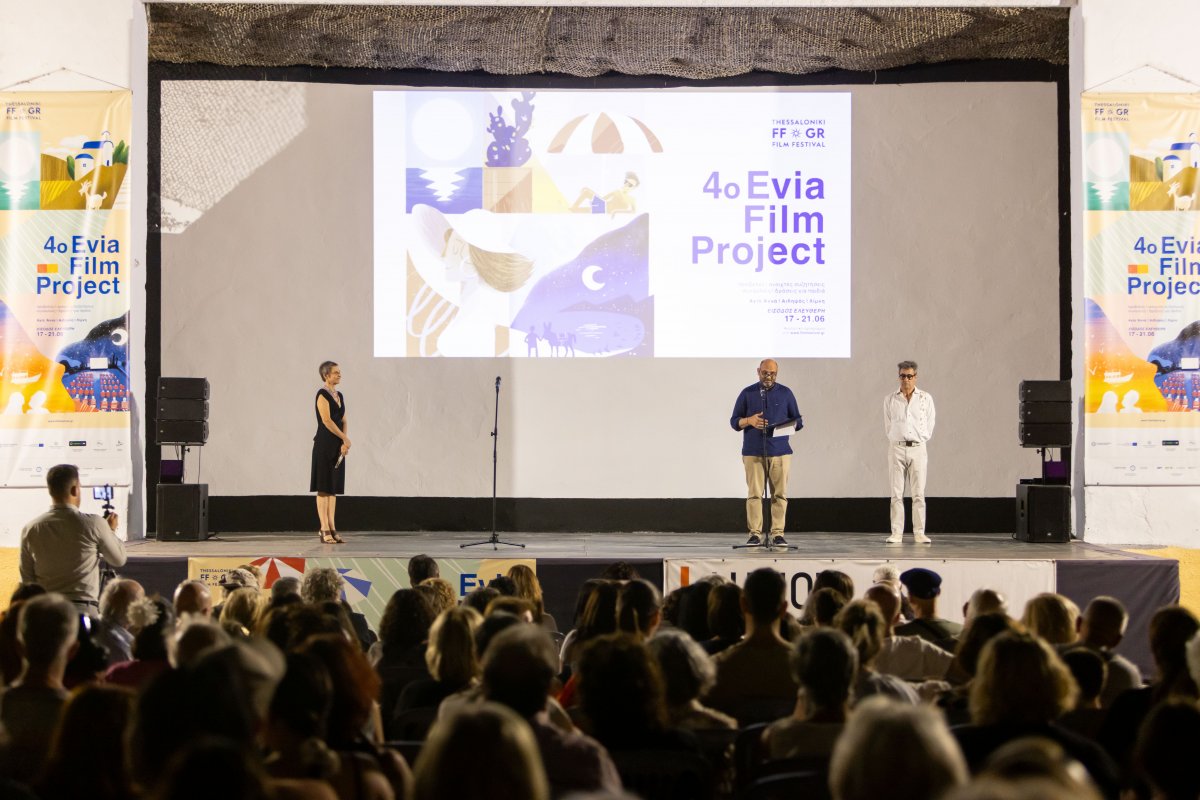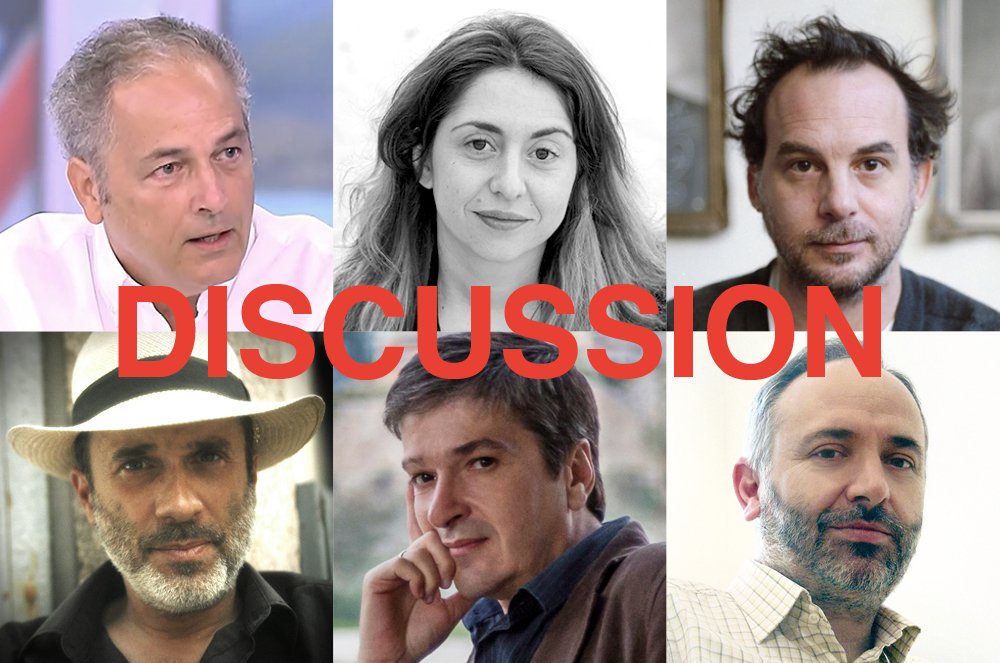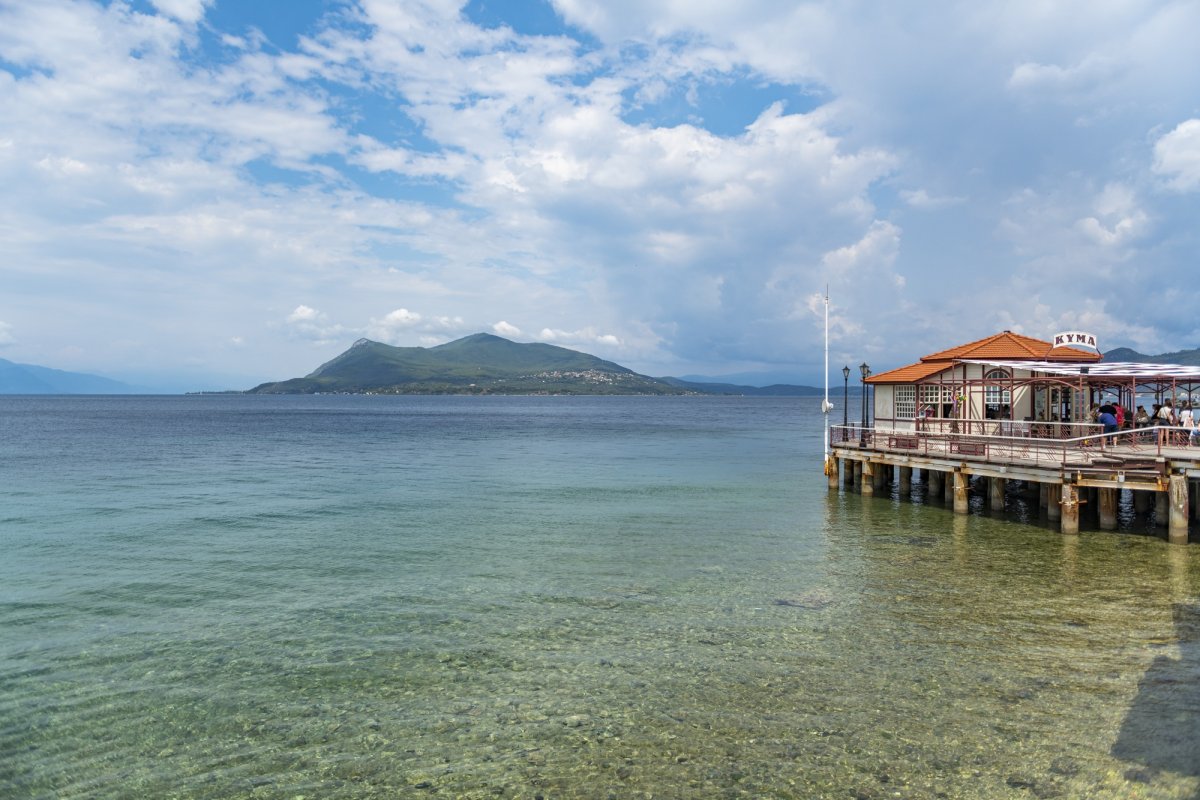RAINER SIMON LECTURE
German filmmaker Rainer Simon gave a stimulating lecture on Saturday, March 19, 2011 at the John Cassavetes Theater, which was organized by the TDF in cooperation with the Goethe Institute, about “DEFA, censorship and its abolition following German unification”.
Rainer Simon is considered one of the most important filmmakers of the former German Democratic Republic. His work includes films focusing on present-day issues, critical of everyday life in East Germany. He has also worked in Latin America, directing film workshops in many countries of the region. Besides directing, he is also a lecturer at the Film and Television University (HFF) in Potsdam and Munich. He also organizes workshops addressed to new filmmakers in Ecuador.
DEFA (Deutsche Film-Aktiengesellschaft) was practically a monopoly in the East German film industry, and was under the total control of the communist regime. Around 700 fiction films and 10,000 documentaries were made in the DEFA, which also had special animation studios. “If you were a filmmaker at the time, you could only work for them. There were no independent production companies back then. There was no video or any of the modern technologies that allow filmmakers to be free to express themselves. In the 1980s an underground cinema scene emerged, but in Dresden and Berlin directors had no professional technical equipment. Films were shot with 8mm cameras and were only marginal, with no hope of finding their way to theaters”, said Simon.
The first film made in the DEFA studios in 1946 was authorized by the Soviet military administration. “It was a film called The Murderers are among us by Wolfgang Staudte; among us indeed they were, but they had fled to Western Germany to stay safe. This film marked the beginning of a tradition of antifascist filmmaking at DEFA”, noted Mr. Simon. Every year, up until 1990, the DEFA studios made 2-3 films of anti-Nazi content. One of them was Stern (Star) by Conrad Wolf, filmed in 1958, which dealt with the prosecution of the Jews of Thessaloniki. Simon’s last film for DEFA was about the German occupation of Greece. DEFA also made another category of movies, focusing on the life of workers in East Germany. “They showcased the achievements of communism, but these films had no grounds on reality. Any director who tried to record objectively the realities of the time would become a target of the regime. These were propaganda films, and they are responsible for DEFA’s bad reputation“, commented Mr. Simon. Political films were not the only ones made at the state studios. DEFA also made 15-20 fiction films a year, along with science fiction films, comedies and children films to attract viewers.
Cinema history in Eastern Europe is closely related to the history of the people who wrote it, said Rainer Simon, whose artistic career was directly influenced by the political environment he was brought up in. His family was fortunate not to become involved in World War II, so he was never stigmatized “for being a Nazi”. When he was a teenager, he was inspired by Michael Kalatozov’s film on the Soviet Union after Stalin’s death. “That’s when I started writing scripts – I wanted to change what I saw. After I passed the entry exams of the film school, I knew I wanted to make aesthetically different films, since 90% of the films made at the time followed the same mainstream prewar pattern which I hated”, he said. Two weeks into his studies, work started on the erection of the Berlin Wall. The wall actually crossed his school’s courtyard. At the age of 24, Rainer Simon got authorization to make his first film. However, “they rejected my film overnight, while I was kept in the dark. My hopes that I could make good films were dashed”. Then, Mr. Simon worked as assistant director next to Ralf Kirsten and Conrad Wolf. From 1968 onwards, he made fiction and children films, where he enjoyed more artistic freedom.
“After the Wall was erected, we were hoping that at last, since no one was able to escape, a genuine debate would begin in earnest. In 1963, a group of young filmmakers, amongst them myself, created Collective ’63. Our goal was to make films, camera in hand, focusing on life in East Germany. During that time, many significant films were made”, stressed the filmmaker. A windfall of important political events ensued: the democratic transition, the Cuba missile crisis under Khrushchev, JFK’s assassination, the Brezhnev dogma and the Prague Spring. These developments influenced the cinema of East Germany, turning it at times to a more liberal and times to a more conservative direction. During the escalation of the Cold War, a time of economic decline for East Germany, filmmakers unwilling to adapt to political realities were treated as scapegoats and their films were banned. However, as Rainer Simon readily acknowledged, “very few filmmakers took a stance against the authoritarianism of the regime”. During the 1970s, most of DEFA’s films focused on life in communist East Germany, avoiding any ambiguity that might provoke the censors.
In 1980, Rainer Simon started making a film on the mayor of a provincial town, who was disenchanted by communist ideals and had become an introvert. “DEFA was the one that asked me to do it, so I was wondering whether this was a test. During shooting, we had to face the harsh criticism of both the government and some colleagues. I was asked to omit certain parts and I reluctantly did that up to a point. Eventually things got nasty, with Erich Honecker personally intervening. He decided in 1983 to put an end to the film”. Many years later, after the fall of the Berlin Wall, Rainer Simon found out that half of his thousand-page file kept by Stasi was about this particular film. He found one letter signed by the Stasi director, in which he said that the film was an experiment that might never make it to theaters. Simon turned next to making films about German history and fascism. “These were probably my best films”, he said.
After the fall of the Berlin Wall in 1990, some important films were made at DEFA studios – such as The Land Beyond the Rainbow - for the first time without any censorship. “Filmmakers who were blacklisted by DEFA before the change of regime remained blacklisted by the new regime. They were unwanted by TV directors, who, despite the fact that they had been the most fervent propagandists, remained in power. It turns out that money censorship is worse than any other form”, added Simon. The first people who got fired from the studio in the late 1990s were the artists. “The director who fired us had been a member of the Stasi!” said the filmmaker.
No films are any longer made by DEFA. DEFA’s studios are available to rent by third parties. Since 1993, Rainer Simon has worked mainly in Latin America, being in charge of cinema workshops addressed to Indian directors. “Latin America interests me more than content Europe”, said the German filmmaker. When asked about the relationship between politics and art, he answered that he was a child of Brecht: “Artists should stay away from political power centers. Their duty is to make people think. Television has fuddled us. Fortunately, we still have festivals screening things beyond the television garbage”.



